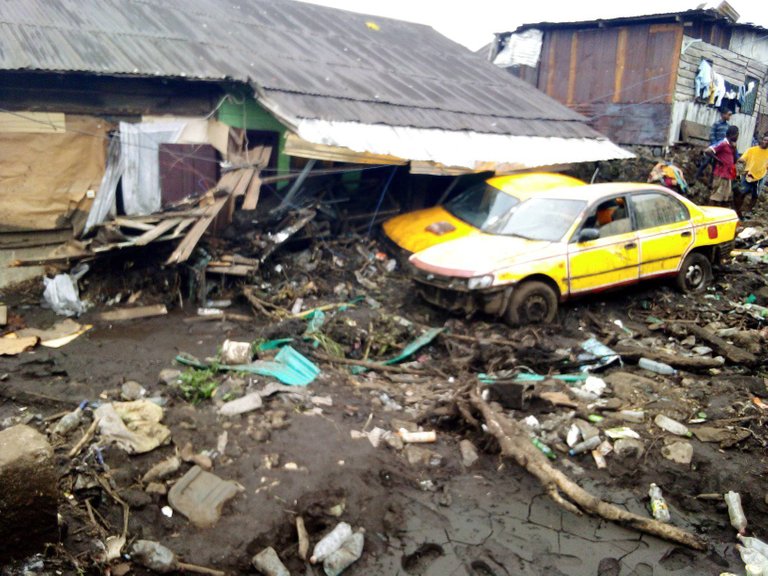
Dear Hivians,
I will really appreciate your input on this. I just saw myself writing in response to the horrible images I saw from Buea. I am actually taking some courses on Climate Change and one of them which begins in June is how to use Artificial Intelligence/Machine Learning to mitigate Climate Change with Climate Change AI.
When I applied for the course, my case study was about how to use weather, hydrological, pedological, and geological datasets to predict flooding and warn communities. The situation in Buea is a critical one and immediately after I finish my course, I will go to Buea for field research and knowledge application so that we can avert future disasters.
**The floods of Buea are just a gentle reminder that humanity is 99.9% responsible for the different climate disasters plaguing her. **
I'm not a prophet of doom but the situation of Buea is not going to get better any time soon.
Last year, it was bad and this year it will get worst and will continue to get worst if we don't take concrete measures to mitigate these weather/climate disasters.
Without any field research to justify my facts, I can say from basic observation that the rainfall was intense but what worries me the most is the stream load (the quantity of bed and suspended load the flooded streams carried).
The stream load proves that the erosion of the flanks of Mount Cameroon was intense and if erosion was intense, it's simply because a greater part of the slopes of Mt Cameroon are bare and have no trees/grass to help as anchorage to reduce the volume of water that runs down the flanks of the volcano. This means there is little or no time for percolation and mindful of the gradient of the volcano, the stream discharge, velocity, competence, and capacity are all at maximum, making every stream/runoff flowing down the hills of Buea capable of dissolving anything in their path.
Remember we're still at the onset of the rainy season and if there's already this kind of flooding, it means when the groundwater in the soils of Buea will be fully recharged, we will witness more flooding.
Another aspect that I haven't talked about is how urbanization has greatly contributed to destabilizing the slopes of Mount Fako as well as how people are narrowing waterways for construction.
What can we do to mitigate the disaster?
It will take a field visit to better propose strategies on how to tackle or adapt to these changing weather patterns that are catastrophic.
For now, I will recommend that the people of Buea should be on high alert. They should use their smartphones for frequent weather updates to know when there will be thunderstorms so that they can evacuate risky zones.
It's very clear that the government needs to build larger waterways to accommodate the huge volume of water coming down the flanks of Mt. Fako or create diversions for the water. Building embankments, dams, and terracing could also be of help but the choice of what to do will depend on field recommendations from some scientific work.
The most effective, natural way to control soil erosion and reduce stream discharge on steep slopes and embankments is to plant vegetation. Trees, shrubs, and grass remain the best defense against erosion. Not only will the grass, fescue, and leaves help to slow down raindrops as they fall (reducing stream discharge and increasing percolation), the roots of the plants will also help to hold the soil together, making it harder for water to wash it away.
However, even if we cover the whole of Mt Fako with trees now, it will take some 5 to 10 years before we can begin to enjoy the benefits.
So I recommend that the people should widen and straighten their waterways, evacuate risky areas, be on high alert for weather forecasts, and call on the government to take urgent action.
May the victims of the floods find comfort and may the souls of the departed rest in peace, Amen.
